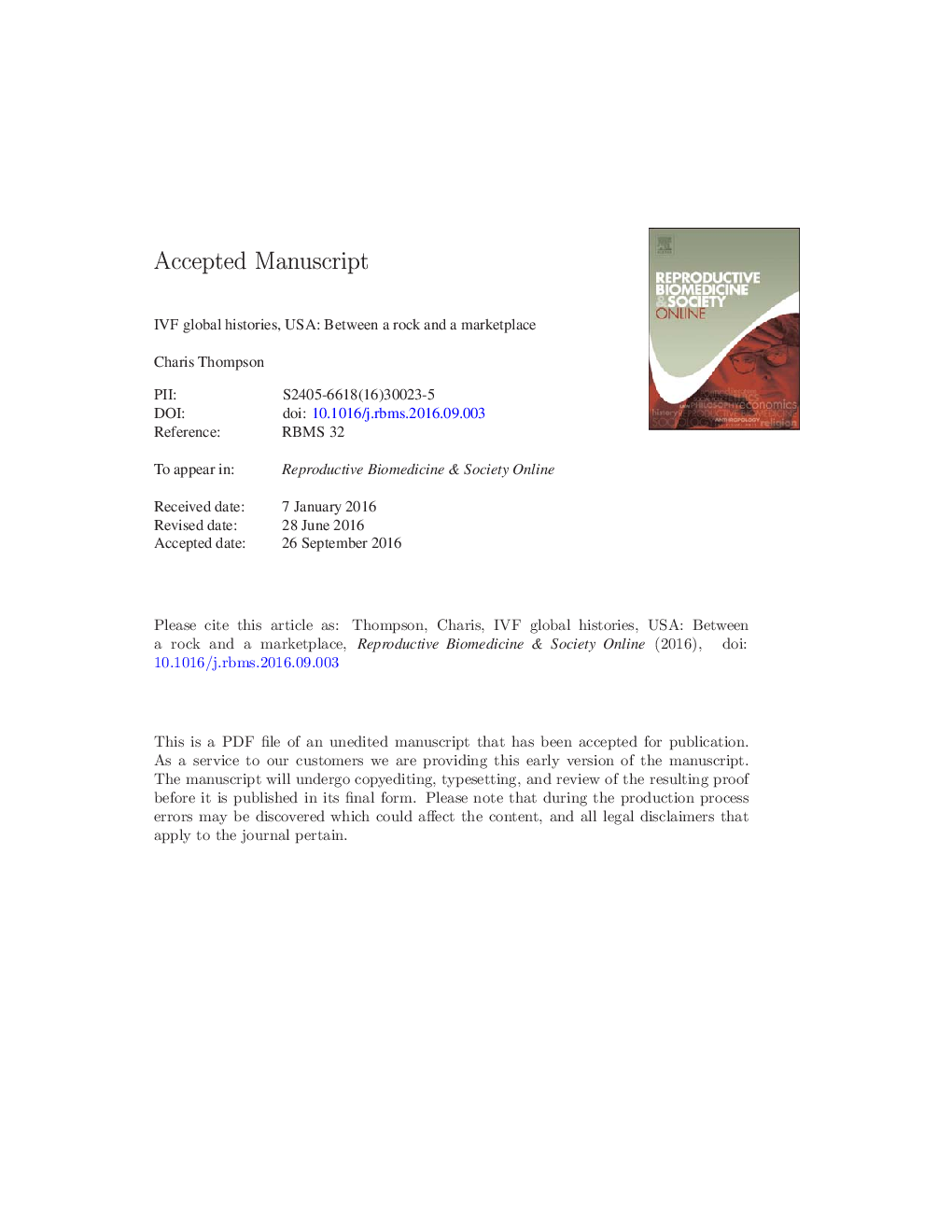| Article ID | Journal | Published Year | Pages | File Type |
|---|---|---|---|---|
| 7527017 | Reproductive Biomedicine & Society Online | 2016 | 18 Pages |
Abstract
The USA has played, and continues to play, a distinctive and significant part in the history of IVF and assisted reproductive technology worldwide. American IVF emerged in the scientific context of contraceptive and fertility research, in the social context of a wealthy nation without universal healthcare, and in the political context of the abortion debate and its impact on federal versus state funding and regulation. IVF had its first clinical success in the USA in 1981. Since then, IVF in the USA has become known for procedures involving third, fourth and fifth parties as gamete donors and surrogates. The USA has also been one of the pioneers in domestic and transnational deployment of IVF for lesbian, gay, bisexual, transgender (LGBT) parenthood, and a pioneer of the social egg-freezing revolution. US IVF has been marked by professional and patient advocacy for such things as the honest reporting of success rates, recognition of the risks of postponed childbearing, and the need for insurance coverage. Certain landmark legal custody disputes over IVF embryos and offspring, as well as media attention to gendered, racialized, and class-based access to and pricing of assisted reproductive technology, have also driven the development of IVF in the USA.
Keywords
Related Topics
Health Sciences
Medicine and Dentistry
Obstetrics, Gynecology and Women's Health
Authors
Charis Thompson,
